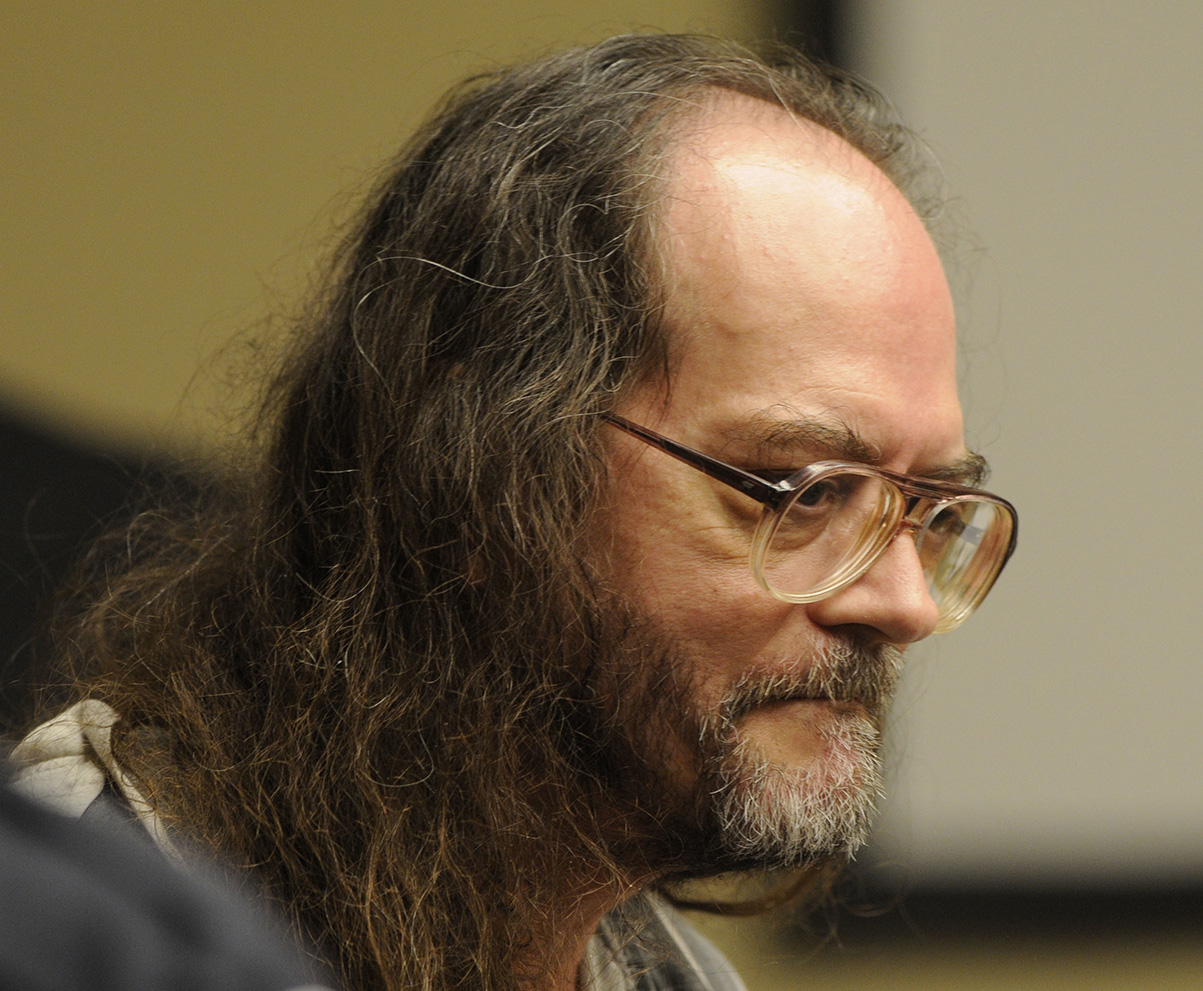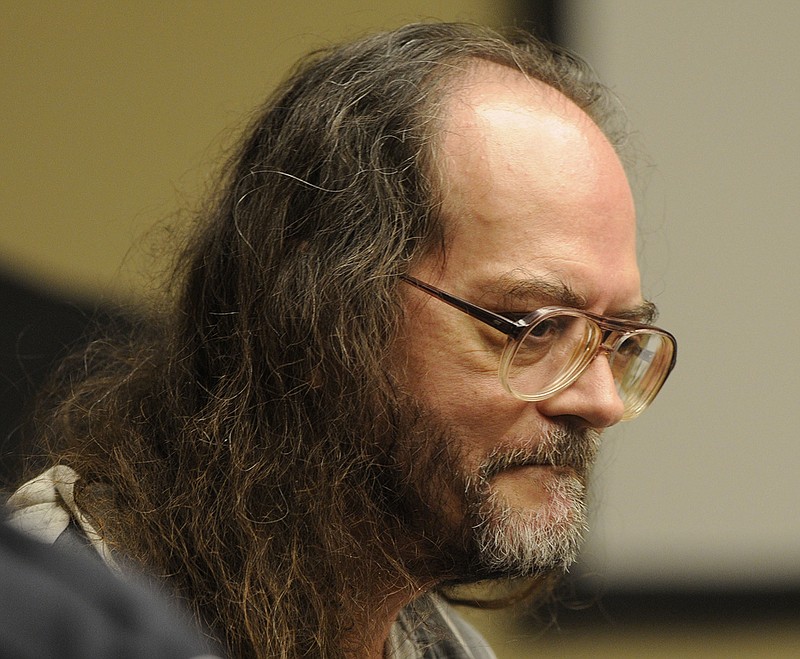NASHVILLE, Tenn. (AP) - Tennessee is set to execute a man for the 1985 rape and murder of a 7-year-old girl, in what would be the first time the state has applied the death penalty since 2009.
Inmate Billy Ray Irick, 59, is scheduled to receive a three-drug injection Thursday evening at a maximum-security prison in Nashville. He was convicted in 1986 in the death of Paula Dyer, a Knoxville girl he was babysitting.
 In this Aug. 16, 2010 file photo, Billy Ray Irick, on death row for raping and killing a 7-year-old girl in 1985, appears in a Knox County criminal courtroom in Knoxville, Tenn., arguing that he's too mentally ill to be executed by the state. The Tennessee Supreme Court has refused to stay Thursday's Aug. 9, 2018, scheduled execution of the convicted child killer while the state's new lethal injection protocol continues to be challenged on appeal. The order brings Tennessee within days of killing Irick with a three-drug cocktail, barring some last-minute change. (Michael Patrick/The Knoxville News Sentinel via AP, File)
In this Aug. 16, 2010 file photo, Billy Ray Irick, on death row for raping and killing a 7-year-old girl in 1985, appears in a Knox County criminal courtroom in Knoxville, Tenn., arguing that he's too mentally ill to be executed by the state. The Tennessee Supreme Court has refused to stay Thursday's Aug. 9, 2018, scheduled execution of the convicted child killer while the state's new lethal injection protocol continues to be challenged on appeal. The order brings Tennessee within days of killing Irick with a three-drug cocktail, barring some last-minute change. (Michael Patrick/The Knoxville News Sentinel via AP, File)The U.S. Supreme Court appeared to clear the way Thursday afternoon for the execution plans to proceed, denying Irick's request for a stay. But Justice Sonia Sotomayor issued a blistering dissent, recounting details from a recent state court trial of a case brought by inmates contesting Tennessee's execution drugs.
"In refusing to grant Irick a stay, the Court today turns a blind eye to a proven likelihood that the State of Tennessee is on the verge of inflicting several minutes of torturous pain on an inmate in its custody," Sotomayor wrote. "... If the law permits this execution to go forward in spite of the horrific final minutes that Irick may well experience, then we have stopped being a civilized nation and accepted barbarism."
Cecil Johnson was the last Tennessee inmate executed, put to death in December 2009 by lethal injection for the killing of three people in Nashville during a 1980 convenience store robbery. Since then, the state has endured legal challenges and difficulties finding execution drugs including its previous one, pentobarbital. The state says drug makers stopped selling that barbiturate for lethal injections.
On Monday, the state Supreme Court also refused to block Irick's execution, saying the lawsuit filed by inmates involving the execution drugs wasn't likely to succeed. That case is continuing in a state appeals court.
In a ruling late last month, Davidson County Chancellor Ellen Hobbs Lyle wrote that attorneys for 33 death row inmates, including Irick, didn't prove that there is a substantially less painful means to carry out the execution or that the drugs the state plans to use would cause the inmate to be tortured to death.
Tennessee plans called for using midazolam as a sedative, the muscle-relaxer vecuronium bromide and then potassium chloride to stop the heart. At question is whether midazolam is actually effective in rendering someone unconscious and unable to feel pain from the other two drugs. Federal public defender Kelley Henry said at trial that inmates were tortured to death, feeling like they were suffocating, drowning, and utterly confused.
Attorneys for the state have said the U.S. Supreme Court has upheld the use of midazolam in a three-drug series.
In Nevada, the drug company Alvogen has sued to block use of midazolam in a stalled execution. Tennessee is one of 15 states siding with the state of Nevada against the company, though Tennessee is planning to use a version of the drug that is compounded, not directly purchased from a manufacturer.
Faith leaders and death penalty opponents led a protest rally Tuesday against Tennessee's plans to put Irick to death. And last week, Pope Francis revealed new Catholic church teaching that deems the death penalty "inadmissible" under all circumstances.
Prior to the pope's emboldened stance against the death penalty, three Catholic bishops in Tennessee wrote Gov. Bill Haslam, telling him that "the death penalty contributes to the growing disrespect for human life."
Haslam declined Monday to intervene in Irick's case.
